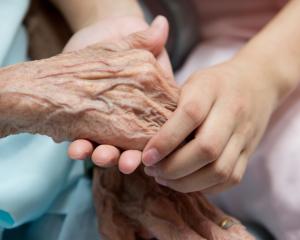
Yesterday, Danny Collard had surgery on his arm, eight days after he broke it when he slipped on a ladder, and following three cancellations of his surgery because of a shortage of acute beds at Dunedin Hospital.
Mr Collard’s wife, Zoe, said they were relieved the surgery had finally been done, but the wait had been testing.
"The staff have been helpful, but the support for the system just is not there."
Before his surgery, Mr Collard said he was "pretty bloody angry" about having to wait for acute surgery.
"I haven’t had a lot of sleep in the last week with the pain, stress and discomfort."
Mr Collard was particularly worried about his financial situation because he could not access accident compensation or income protection until he had had surgery.
"I’m self employed, my wife is up here with me and we have both got a pretty hefty mortgage.
"What’s keeping me awake is, between the two of us, living in Queenstown of all places, we are paying $4000 to $5000 a fortnight just to live there."
An ACC spokesman said he could not discuss individual cases.Mr Collard said Southland Hospital considered operating on him, but took him off a waiting list after being told Dunedin Hospital would operate.
"I probably could have had it done in Invercargill."
On Wednesday, Southern District Health Board surgical director Dr Stephen Packer said the hospital had experienced delays in the availability of acute beds.
"We can’t discuss individual cases but can confirm we had an influx of acute patients today, and their surgeries were prioritised according to their clinical urgency.
"We understand this causes inconvenience for those whose surgery is being delayed, and apologise for this. However, we do need to prioritise our sickest patients."
The SDHB did not respond to questions about whether more acute beds were available yesterday.
Mrs Collard said a specialist had remarked in passing that Mr Collard might require reconstructive surgery at a later date because of the delay.
Mr Collard was told he would have a cast for four to six weeks, then a splint for two to four weeks.
"Then I have to rebuild the strength in my arm, so doctors have pretty much said I’m out [of work] for the rest of the year."












